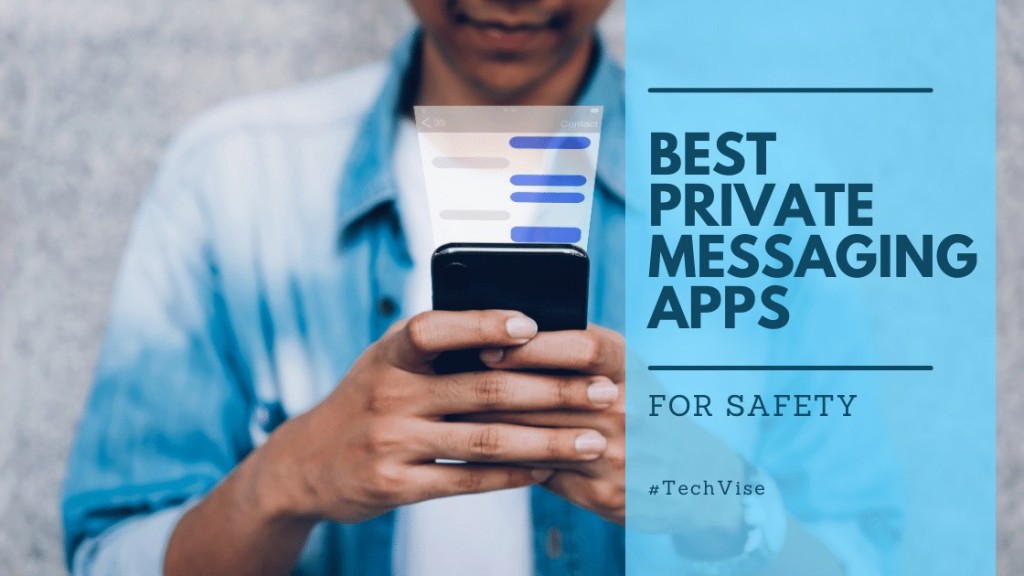After all those privacy scandals over the past few years, no wonder people are becoming increasingly concerned about who can view all the delicate stuff they put online.
There are several ways to protect your digital information – VPN, password managers, private search engines, anti-trackers – and one of those ways is using private messaging apps.
However, before we start reviewing the best apps, we have to highlight what should be the primary method of online protection but is often neglected – common sense.
Guys, before we dive deep into the world of encryption and other hi-tech talks, we need to put on the first firewall – yourself. No matter how secure you think the connection or the app is, just do not share anything that can produce severe problems in your life. Here’s a checklist:
- Be careful what photos you put online, never share credit card information with anybody.
- Never share password and login information, and if you do, change it immediately.
- Try to use two-step authentication wherever possible.
- Never follow suspicious links you get in your email, and try not to visit and buy from shady websites.
- Whenever you are about to enter delicate information, make sure you have “Secure” sign in the address bar, next to the UR.
In short, keep good internet hygiene. That is not too hard, just use your brain before making any decision that can compromise you, whether on the financial or individual plan.
TLDR: Never share nude photos, passwords and credit card information!
Now back to private messaging apps.
Why do I need a Secure Messaging app?
The whole Wikileaks scandal created a snow(den)ball that triggered a chain of events that changed the regular user’s privacy awareness for good.
Private messaging apps existed even before that, but they were primarily used by people who have something to hide, not by people who are just concerned about their privacy. The scandal changed everything – it is a fact, not paranoia, that (most) governments spy on people.
Suddenly the existing private messaging apps skyrocketed in popularity, which forced other messaging systems to start thinking about, and incorporating privacy features too. Also, new names emerged in the private messaging market.
However, governments are not the only issue, data can be stolen by individuals too. Whenever you connect to an untrusted WiFi, somebody can intercept your data, unless you take precautions.
Also, the companies that make apps can also steal your messages, and even resell the info later. Those are few reasons why you should consider using secure messaging apps.
And… let’s not forget the whole Facebook boo-boo.
How do private messaging apps work?
Secure messaging apps use encryption to protect your messages from prying eyes. That makes it impossible for anyone to intercept your messages – the only two people who can see the message are the person you are sending it to, and you.
Hope you already know what does RCS chat mean, because its different from SMS and secure messaging apps
The encryption hides your communications not only from governments and individuals who are trying to steal them, but also from the companies who made the app – once you write the message it is encrypted, sent, and then decrypted so the recipient can read it.
The manufacturer of the app does not have the key to decipher the message – it can only be viewed on your screens. Even if it gets stolen, the only thing the person who got it will be able to see is the unbreakable cypher.
Best Secure & Private Messaging Apps
Signal
If the king of privacy, Edward Snowden, gives the green light to something, then you know your information is secure with it. Enter Signal. This is one of those apps that were secure even before the Internet security became trendy, and it is going strong ever since.
First, it has end-to-end encryption, meaning nobody will be able to intercept your messages. Signal uses its own data infrastructure for transferring messages (no Google involved), and the Axoloti protocol, which is used by some other messengers too, and has proven reliability. It fully encrypts all of your traffic including messages, files, calls, and even video calls.
Besides excellent security, and some usual features, Signal has few unique ones as well, such as self-destruct timer for messages. Additionally, Signal is open-source, and anyone can review its code and check its security.
This app is the standard when it comes to secure communication, and is by far the best app on the list, at least in my (and Snowden’s) opinion.
Telegram
Telegram gives you an option to add other users only by username, and not just by phone number. This separates it from most others, making it more of a social network than just a private and secure mobile app.
Telegram also has 256-bit AES encryption, so no worries about potential interceptions. It has a “secret chats” option, which will automatically destroy all the messages, images, videos and files on both devices.
The self-destruction is available for the whole account too, which is nice. It is a very popular app, with more than 100 million users worldwide. Telegram has full support on all operating systems and even a web app.
Wickr Me
Wickr Me is another popular secure messaging service that offers both the powerful encryption, and options to self-destruct messages, and you can also use swipe gestures to do that manually.
The personal version has a nifty feature that notifies you if someone takes a screenshot, Pro version goes a step further and protects everything from being screenshot-ted (is this a word yet?). You can compare their products to see pricing models.
Last year, Wickr opened some of its codes for the general public, to show how secure the app is. The user interface is simple and looks and works well. This app is so trustworthy that it is used by government officials from all over the world, Wickr claims. It is available on all major platforms, including a native Windows app.
The only downside is that not many people use it, so you will have to do some explaining and recommend it to your friends and family.
CoverMe
The key selling point of CoverMe app is the personalised vault, protected by a password in which all your private data is stored, so nobody but you can access it.
In this vault, you can hide your messages, videos, photos and passwords. Everything will be end-to-end encrypted, so there is no chance of any interceptions. You can also make private calls, without the record on the phone bill, and even send secret SMS, and you can schedule messages for automatic deletion.
This app has some unique features too, such as shake to lock option. But unfortunately, you will need to grab your wallet if you want to unlock every feature CoverMe has.
StealthChat
StealthChat offers SSL encrypted messaging, VoIP calls P2P transfers, all that without keeping message history or contacts information. It uses a new security key for every message you send, making your conversations ultra secure.
Also, to make sure no one can read your messages even if he or she has your phone you can set password, picture or TouchID unlocking. You can also enable the self-destruct option for your conversations, and since StealthChat blocks screenshots, you know that nobody will able to see what you wrote after the message deletes itself, on both devices.
StealthChat is perfect for secret conversations. It is available for iOS and Android devices.
Silence
Silence is an android app. It is a replacement for your stock Android SMS app. It has an encryption protocol i.e. if both you and the person you are sending the SMS to have it installed, your conversations will be encrypted. You can use it to send SMS to people who do not have Silence installed on their phones, but this will not be encrypted.
The app recognises if the recipient has it installed or not, and if they do, Silence will automatically send encrypted text messages. You can also set a password for seeing the stored messages on your phone.
Silence uses Axolotl encryption and is open-source, so anyone can double check its code for security holes at any time. It is only available for Android devices.
Wire
Wire follows EU laws, which are known to respect your privacy far more than American, Canadian and UK. This private messaging service is available on every platform (Android, iOS, MacOS, Linux, Windows and Web), and allows you to send messages, make video calls, send files, all while being fully protected by a Proteus protocol, Signal based.
Wire is open-source, and anyone can review its code. This app has a rich feature list, supports all popular platforms, and is in line with EU laws, but there is a catch – it stores certain information while your account is active, for cross-device syncing purposes.
They delete everything though when you deactivate the account.
Threema
Threema is a paid app, that is why it is towards the end on our list. Still, it is an excellent private messenger, made by Swiss, who are known for their liberal laws and high privacy standards.
Threema is also very popular, with more than million downloads, and it has been around for a while. It is available for Android, iOS and Windows phones, and has a Web app.
It has NaCl end-to-end encryption for everything you share – messages, group chats, calls, file sharing and status updates. You use this app with a unique key each user has; you do not have to register with your phone or email unless you want to.
Threema also automatically deletes all messages from their servers, as soon as they are read. It costs $2.99.
The only reason we try not to talk about WhatsApp is that it is owned by Facebook, a company known to leak and sell user’s private information. Facebook claims that it is impossible for them to intercept your messages, but taking Facebook’s word on privacy issues is NOT something a wise man would (and should) do.
And that was our list of recommendations. Which secure messaging app did we miss, and why do you think it should be part of our list? Let us know in comments below!

